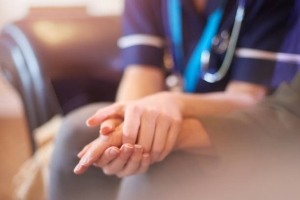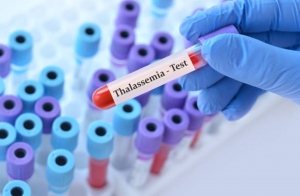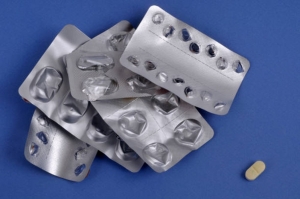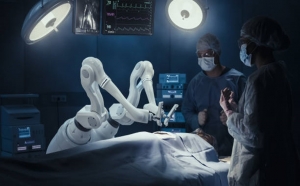England's NHS Launches 24/7 Mental Health Crisis Support via 111 Hotline
Millions of people in England experiencing a mental health crisis can now access 24/7 support through a single phone line, as announced by the NHS. By calling 111 and selecting the mental health option, individuals of all ages, including children, can speak to trained professionals who provide guidance, arrange face-to-face support, or direct them to alternative services like crisis cafés or safe havens. This new service replaces the previously separate local crisis lines and aims to simplify access to urgent mental health care across the country.
This initiative positions the NHS in England as one of the first health systems globally to offer comprehensive mental health crisis support through one unified phone number. The service is designed to ensure that people in crisis receive timely and appropriate care, reducing the need for hospital admissions. In cases where there is a life-threatening risk, every emergency department in England now has liaison psychiatric teams available to offer specialised care, ensuring that those in need are not left without critical support.
The NHS has invested an additional £2.3 billion to expand mental health services, including the recruitment of 8,500 mental health workers to reduce delays and improve access to treatment. The public is encouraged to use this service by calling 111 for urgent mental health support or 999 if there is an immediate risk to life. This expansion reflects the NHS's commitment to addressing the growing demand for mental health care.
Support options, including NHS Talking Therapy Services, are readily available online, ensuring that those with conditions such as anxiety, depression, or PTSD can easily find help. The service also provides tailored support for deaf individuals through the NHS 111 website, making it accessible to a broader population. This comprehensive approach aims to ensure that everyone in need can access the mental health support they require.
UK Health Officials Prepare for Potential New Mpox Strain Amid Global Alert
UK health officials are getting ready incase a new type of the mpox virus appears, though they say the risk to the public is low. This comes after the World Health Organization (WHO) declared recent outbreaks in Africa as a global health emergency. Mpox, previously known as monkeypox, is a virus that causes painful skin rashes and sores.
Plans are being made to ensure UK doctors know the signs of the virus and have access to fast testing. A recent mpox case in Sweden was linked to travel in Africa. The WHO is concerned about a new strain of the virus, called Clade 1b, found in the Democratic Republic of the Congo (DRC) and other African countries, where it has caused over 450 deaths in the DRC alone.
While this new strain hasn't been found in the UK yet, health officials are making sure the country is ready. Dr. Meera Chand from the UK Health Security Agency (UKHSA) said that healthcare workers are being prepared to quickly recognise and manage cases if they appear.
Mpox spreads through close contact with an infected person or contaminated items. Most people recover in two to four weeks, but it can be deadly for those with weak immune systems, pregnant women, and children. A large outbreak in the UK in 2022 was brought under control with vaccines, especially in communities most affected by the virus.
Revolutionary Gene-Editing Therapy for Beta Thalassaemia Set to Launch on NHS
The NHS is poised to introduce a pioneering gene-editing therapy for beta thalassaemia, a genetic blood disorder that impairs haemoglobin production, the protein in red blood cells that transports oxygen throughout the body. This new treatment, utilising Crispr technology, offers a potentially permanent solution, potentially eliminating the lifelong need for regular blood transfusions, which patients typically undergo every three to five weeks.
Beta thalassaemia primarily affects individuals of Mediterranean, South Asian, Southeast Asian, and Middle Eastern descent, causing severe symptoms such as fatigue, weakness, and shortness of breath, and significantly shortening life expectancy. The therapy involves extracting stem cells from the patient’s bone marrow, reprogramming them to produce healthy haemoglobin, and reintroducing them into the body. Before the new cells are implanted, patients must undergo chemotherapy to eliminate the existing, malfunctioning cells.
Unlike traditional approaches that might attempt to directly repair the genetic defect, this therapy cleverly reactivates the body’s ability to produce foetal haemoglobin by disabling a genetic switch known as BCL11A. This switch typically shuts off foetal haemoglobin production after birth, but by keeping it active, the therapy ensures that patients can produce a functional form of haemoglobin unaffected by the disorder.
Clinical trial data have shown promising results, with most patients who received the treatment not needing blood transfusions for at least a year. Developed by Vertex and priced at £1.6 million per patient, the therapy has been approved by the National Institute of Health and Care Excellence (NICE). The NHS has negotiated a reduced price, making the treatment accessible to eligible patients across the UK.
Medication Shortages Impacting Patients' Health and Well-being
A significant shortage of certain medications, including essential pancreatic enzyme replacements like Creon, is affecting patients across Europe. This shortage has been attributed to limited availability of raw ingredients and manufacturing constraints, leading to an increased demand for alternative therapies.
Many patients with conditions requiring these medications, such as cystic fibrosis, are facing difficulties in managing their health. These individuals rely on enzyme replacements to aid digestion, as their conditions cause mucus buildup in the lungs and digestive system. The lack of available medication has forced some to ration their pills, reducing their daily intake to extend supplies.
This situation has led to adverse side effects, including digestive issues and concerns about potential weight loss, which could exacerbate their underlying conditions and increase the risk of infections. The reduced intake of essential medications can make it challenging for patients to maintain their overall health, leading to further complications and hospitalisations.
The Department for Health and Social Care (DHSC) has acknowledged the ongoing global supply challenges and is collaborating with the NHS and industry partners to ensure that alternative treatments are accessible. They emphasise the importance of maintaining continuity of care for affected patients and are working to mitigate the risk of further health complications due to these shortages.
UK's First Paediatric Robot-Assisted Surgery Successfully Treats Seven-Year-Old
A seven-year-old boy from Gosport, Hampshire, named Reece, recently became the first child in the UK to undergo surgery using a cutting-edge robot-assisted device. He was treated for a kidney condition at Southampton Children's Hospital, where the NHS is conducting a trial of the Versius Surgical Robotic System for paediatric patients. This technology, already successful in adult surgeries, is designed to enhance precision and improve recovery outcomes.
Reece's surgery, led by consultant paediatric urologist Ewan Brownlee, addressed an obstruction that impaired urine flow from his kidney. The operation involved repairing a narrowed vessel using the Versius system's advanced features, including small surgical instruments and a magnified screen for better visualisation.
The hospital aims for this technology to reduce recovery times, lessen post-operative pain, and shorten hospital stays. Reece's mother, Elizabeth, mentioned that although he was initially nervous, the prospect of a robot-assisted surgery excited him. His father, Ashley, noted the impressive recovery Reece experienced, emphasising the desire for the best possible care for their son.
Reece was discharged the day after his procedure, and UHS chief medical officer Paul Grundy expressed pride in their role in advancing this minimally invasive technique, hoping it will benefit more children across the UK in the future.







